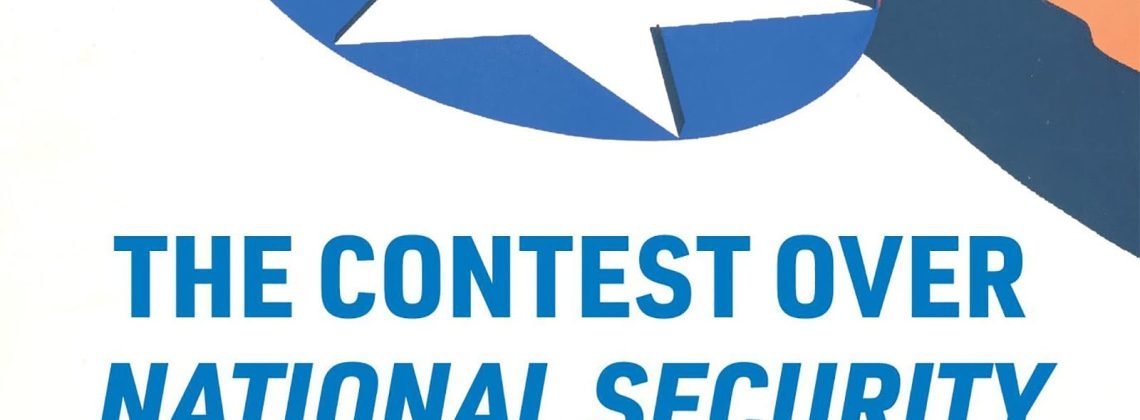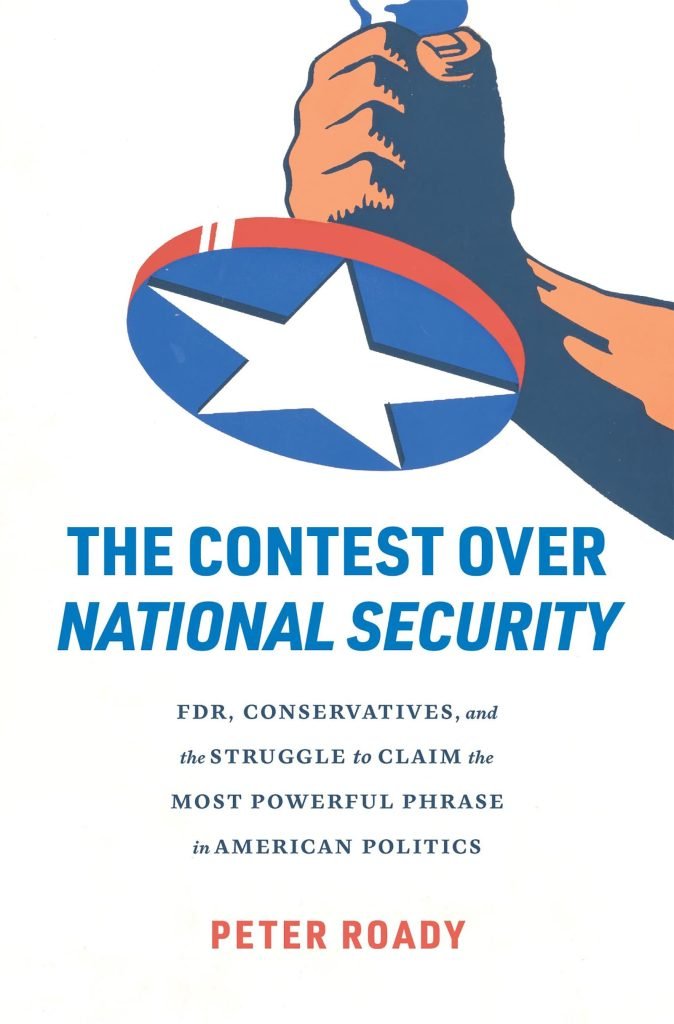

Peter Roady is Assistant Professor of History at the University of Utah. This interview is based on his new book, The Contest over National Security: FDR, Conservatives, and the Struggle to Claim the Most Powerful Phrase in American Politics (Harvard University Press, 2024).
JF: What led you to write The Contest Over National Security?
PR: I wanted to understand how the term “national security” came to occupy such a powerful position in American politics, and how it came to be defined as we understand it today. Like most people who have worked in national security—and indeed, like most Americans—I assumed the term had been with us since the country’s founding and had always meant basically the same thing: security against physical attack. It turns out that’s not right. The term didn’t really enter mainstream political discourse until Franklin Roosevelt put it there in the 1930s, and he argued that national security required both broad-based economic security and security against physical attack. The question then became: why did economic security fall out of the national security frame?
JF: In 2 sentences, what is the argument of The Contest Over National Security?
PR: The book argues that Roosevelt’s success using the language of security to advance his agenda triggered a powerful counterattack from conservatives and foreign policy professionals who both sought to enshrine a narrower definition of national security that excluded economic security. Through an enormous public persuasion campaign and clever bureaucratic maneuvering, Roosevelt’s opponents helped to relegate economic security to a separate “welfare state”—with consequences for American political development that continue to reverberate.
JF: Why do we need to read The Contest Over National Security?
PR: There’s a lot at stake in what counts as a national security matter, including money, urgency, and the ability to get things done. Some people like to point out that the United States now spends more money on the welfare state than on the national security state, but that comparison doesn’t tell us anything about the sufficiency of either number or about the relative difficulty of getting to either one. It’s a lot easier to persuade Congress to open the national checkbook in the name of national security than in the name of welfare. Something like 80 million Americans struggle to make ends meet today, and around 200,000 Americans have died “deaths of despair” each of the last few years. Researching and writing this book opened my eyes to the fact that Americans once saw those issues as national security problems. By recovering Roosevelt’s broader concept of national security, I hope my book will help spur us to tackle those problems—and other dangers not currently seen as national security threats—with the urgency and resources they demand.
JF: Why and when did you become an American historian?
PR: I had a tremendously satisfying first career serving in national security—defined narrowly!—positions in the US government. I left that work because I love teaching and mentoring, and because I very much enjoy the deep research, thinking, and long-form writing you get to do as a historian. I also hoped that my combination of insider experience and outsider perspective would enable me to provide a useful and somewhat different perspective on the American national security state that both complements and challenges what scholars, policymakers, and citizens know about it.
JF: What is your next project?
PR: I am writing a book that explores the overlooked domestic consequences of American covert action abroad. Since the late 1940s, covert action has been one of the most alluring tools in the foreign policy toolkit, supplying the mechanism for everything from election meddling to nuclear sabotage. Covert action’s appeal has also made it the subject of countless books, articles, films, and TV shows, which together have created a sense of familiarity with covert action among Americans. Yet covert action is, of necessity, one of the most carefully protected activities undertaken by the government. An unsettling question therefore lurks beneath this illusion of knowledge: how do we know what we know? With few exceptions, information about covert action has come from selective disclosures made by the people controlling the secrets. My next book shows how these selective disclosures tampered with the public’s ability to make sense of world events, eroded trust in government, and fueled conspiracy theorizing among a wide range of Americans. By exploring covert action’s hidden domestic costs, the book aims to deepen our understanding of the American national security state’s impact here at home.
JF: Thanks, Peter!